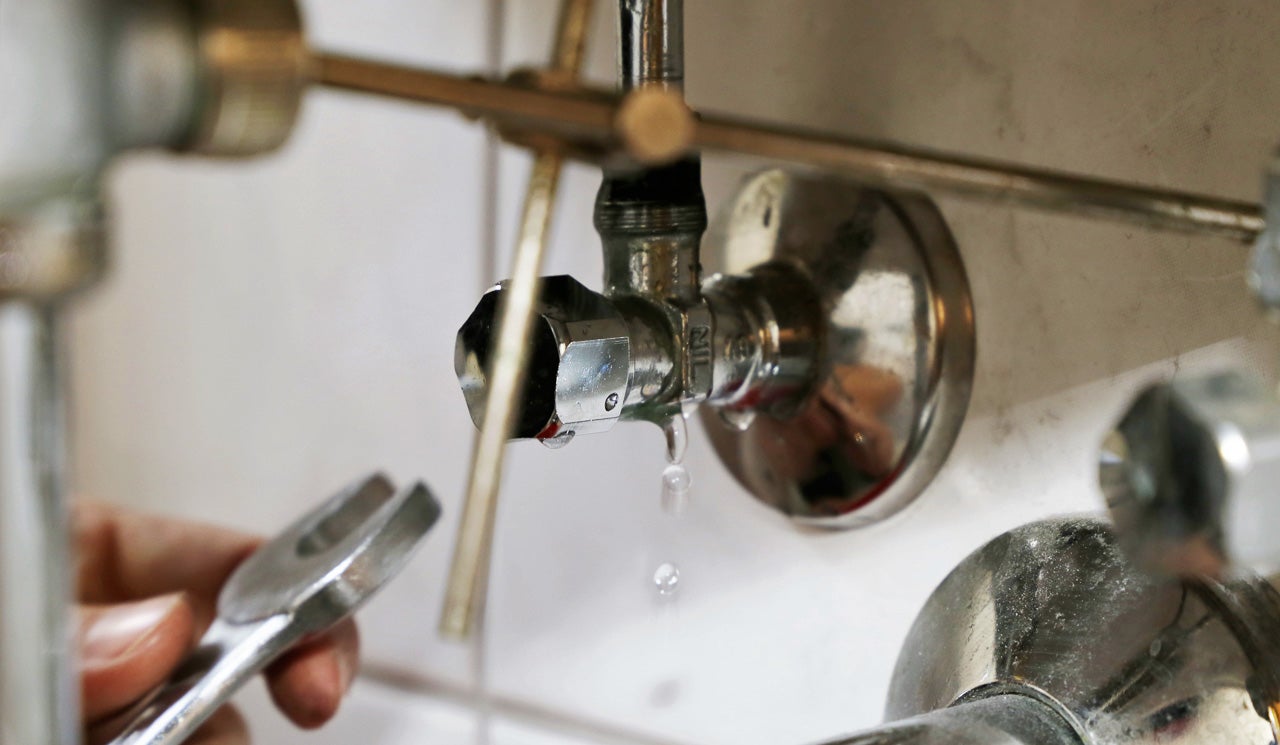Everyone maintains their private thinking involving Leaking water lines.

Early detection of leaking water lines can reduce a possible calamity. Some small water leaks might not be visible.
1. Check Out the Water Meter
Examining it is a proven method that assists you find leakages. If it relocates, that suggests a fast-moving leak. This means you may have a sluggish leak that could even be below ground.
2. Inspect Water Consumption
Analyze your water expenses as well as track your water intake. As the one paying it, you need to observe if there are any discrepancies. If you detect sudden changes, regardless of your intake coinciding, it means that you have leaks in your plumbing system. Bear in mind, your water expense should drop under the exact same array each month. A sudden spike in your expense suggests a fast-moving leak.
On the other hand, a steady rise each month, despite the very same practices, reveals you have a sluggish leakage that's additionally slowly intensifying. Call a plumber to thoroughly inspect your property, especially if you feel a warm location on your floor with piping underneath.
3. Do a Food Coloring Examination
When it comes to water consumption, 30% originates from commodes. Examination to see if they are running effectively. Drop flecks of food color in the container and also wait 10 mins. If the color somehow infiltrates your bowl throughout that time without flushing, there's a leak between the storage tank as well as bowl.
4. Asses Exterior Lines
Do not forget to examine your outside water lines also. Test faucets by connecting a yard tube. Must water seep out of the connection, you have a loose rubber gasket. Replace this and ensure all links are limited. It will aid obtain it professionally checked out and also maintained annually if you've got a sprinkler system. One small leakage can waste tons of water as well as surge your water expense.
5. Examine the circumstance and also inspect
House owners must make it a routine to examine under the sink counters and also even inside closets for any type of bad odor or mold and mildew development. These 2 warnings show a leak so prompt interest is required. Doing regular evaluations, even bi-annually, can conserve you from a significant issue.
If you know your home is currently old, maintain a watchful eye on your heating systems, pipes, pipelines etc. Look for discolorations and weakening as most pipelines as well as devices have a life span. They will likewise naturally wear away as a result of tear and also use. Don't wait for it to escalate if you suspect leaking water lines in your plumbing system. Call a professional plumber today so you do not end up with a terrible mess in your home.
Early detection of dripping water lines can mitigate a potential calamity. Some tiny water leakages may not be visible. Checking it is a proven way that assists you discover leakages. One small leak can waste lots of water as well as increase your water bill.
If you believe dripping water lines in your plumbing system, don't wait for it to intensify.
How to Know If Your Home Has a Hidden Leak
Water Meter Reveals Inexplicable Water Usage
If you’d like to test whether or not there’s a leak somewhere in your home, you can do this using your water meter. Here is how to conduct the test:
Don’t use any water in your home for at least 30 minutes; this also means not turning on faucets or water-using appliances.
Go outside, and check your water meter for activity.
If your water meter shows that there was activity, even though no one was using any water, this proves that there is a leak in your home.Visible Mold or Mildew Growth
Leaks behind walls create moist, dark environments that allow mold and mildew to grow and thrive. Eventually, you might see mold growth forming on the wall closest to a hidden leak.
If mold is growing in an area that receives a high amount of moisture, such as a bathroom, it may simply be an indication that better ventilation is needed. However, if you see mold growth on a wall or the ceiling in an area where you would not expect, you probably have a hidden leak.
Musty, Mildew Odor
Sometimes you might not be able to see the mold or mildew that is growing as a result of a leak. However, the smell can give the problem away just as easily. If you catch a whiff of something musty, there’s a good chance that old water is collecting somewhere in your home that you can’t see.
Stained/Warped Walls, Ceilings, or Floors
When your home soaks up water, a variety of red flags can become visible, including ceiling stains, bubbling drywall, warped walls, and sagging floors. While these issues can be caused by excess humidity, they can also be signs that a pipe or plumbing connection has started leaking behind your walls.
Inexplicably High Water Bill
After a while, you get a general sense for what your water bill should be. If you own a pool or sprinkler system, your bill will tend to be higher during summer. However, if you receive a water bill that seems especially high, and you can’t figure out what caused it, then you may have a hidden leak somewhere that’s increasing your bill.
https://www.plumbingjoint.com/blog/2019/july/how-to-know-if-your-home-has-a-hidden-leak/

I discovered that blog post about Finding hidden leaks while doing a lookup on the search engines. Loved our entry? Please share it. Let someone else check it out. Thank you for taking the time to read it.